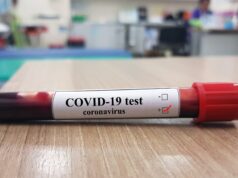The Nigeria Centre for Disease Control (NCDC) has said it is monitoring emerging evidence on Omicron variant and its implication, to inform Nigeria’s response to the COVID-19 pandemic.
The Director General, NCDC, Dr. Ifedayo Adetifa, disclosed this in an interview with the News Agency of Nigeria (NAN), on Sunday in Abuja.
The variant was first identified from testing done on November 9, 2021 in Botswana on travellers from West Africa. It was reported to the World Health Organisation (WHO) on identification of cases among a cluster of young unvaccinated people in South Africa on November 24, 2021.
While this variant has so far not been detected in Nigeria, a number of cases have now been reported in the UK, Israel, Botswana, Hong-Kong, Germany, Belgium, Italy and many more countries. However, no deaths have been attributed to this new variant yet.
A total of 126 genomes of this variant have been detected globally and published on GISAID, a global mechanism for sharing sequencing data.
The SARS-CoV-2 variant has now been designated a variant of concern (VOC) and named Omicron by the WHO, as advised by the independent Technical Advisory Group on SARS-CoV-2 Virus Evolution (TAG-VE).
Adetifa said that the Federal Ministry of Health (FMOH) and NCDC are aware of reports of a new COVID-19 variant – the B.1.1.529 lineage.
“The FMOH and NCDC are monitoring emerging evidence on this new variant and its implication, to inform Nigeria’s response to the COVID-19 pandemic.
“Given the high number of mutations present in the Omicron variant and the exponential rise in COVID-19 cases observed in South Africa, this virus is considered highly transmissible and may also present an increased risk of reinfection compared to other VOCs,” he added.
He, however, said the fears about the variant’s ability to evade protective immune responses and/or its being vaccine resistant were only theoretical so far.
“This virus can still be detected with existing Polymerase Chain Reaction (PCR) tests. The WHO and researchers across the world are working at speed to gain understanding of the likely impact of this variant on the severity of COVID-19 and on the potency of existing vaccines and therapeutics,” he added.
The NCDC boss added that the agency would continue to ensure daily review of surveillance data and uses this to inform public health decision making.
Therefore, he urged all states to ensure that sample collection and testing are accessible, so that travellers, people with symptoms or who have been exposed to COVID-19 cases get tested promptly.
He disclosed that the NCDC, through the National Reference Laboratory (NRL), would continue to coordinate genomic surveillance and other activities required for the detection of variants.
He assumed global spread of this variant had occurred and it is prioritising sequencing of recently-accrued samples from SARS-COV-2 positive travellers from all countries, especially those from countries that have reported the Omicron variant already.
- OPINION: The EFCC, Sirika and Bello as beasts in the jungle - May 11, 2024
- Why don’t men like men’s world again? - May 11, 2024
- Bricklayer jailed 8 months for stealing 12 bags of cement - May 9, 2024










